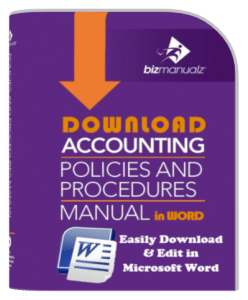What are the Top 10 1099 Tax Write-Offs Everyone Should Know?

Whether you’re an independent contractor, a business owner, or a common-law employee who has to report another form of income, the IRS Form 1099 is there to cover almost all bases. From freelancing income, stock dividends, and even abandoned properties and canceled debts, there are a lot of different forms for different incomes to declare. What are the Top 10 1099 Tax Write-Offs Everyone Should Know?
Top 10 1099 Tax Write-Offs Everyone Should Know
According to the Internal Revenue Service, Form 1099 is an umbrella term for different tax forms used to report and document income aside from those regularly received from employment. Aside from knowing what forms to use, it is crucial to learn about tax write-offs applicable to 1099s.
Imagine how much of your hard-earned income could’ve been saved if you applied for these valid tax deductions. Even the smallest write-off over the course of a year could equate to significant savings on your part. To help you make the most out of your money, here are the top 10 1099 tax write-offs everyone should know.
1. Mileage
It might appear tedious and small at first, but transportation mileage is actually among the most significant tax-deductible expenses you can apply for, whether you’re a freelance employee or a business owner. To start with, there are two different approaches in getting one of the most common and most flexible 1099 write-offs:
Actual Mileage Deduction
Under this approach, you track all expenses that went into your vehicle for the past fiscal year, such as car payments, insurance premiums, gas, maintenance, and depreciation. However, be sure to keep all your receipts.
Standard Mileage Deduction
The more commonly used method is the standard mileage deduction. Also known as the deductible mileage or standard mileage rate, this refers to a standard cost per mile at a rate set by the IRS. It changes every year and provides a realistic estimate for drivers. This method is easier and saves more time during tax season–you just have to compute your mileage by the rate.
Choosing Between the Mileage Deduction Strategies
You would benefit more from actual mileage deductions when you:
-
- Drive older car models that are less fuel-efficient and cost more maintenance.
- Use larger vehicles like vans, SUVs, and trucks.
- Drive expensive vehicles like luxury and sports cars
On the other hand, the use of standard mileage deductions works best for drivers who:
-
- Use newer car models with better fuel efficiency and lower maintenance costs
- Compact cars, hybrid vehicles, and other cars that use alternative fuel sources
2. Home Office Tax Deductions
If you’re a freelancer or a small business owner, identifying your valid home office tax deductions can save you dollars that you can reinvest or use for other business needs. The first thing you need to do is identify and declare the part of your house that you use for business.
Here are the IRS’s requirements when it comes to home office tax deductions:
- Regular and Exclusive Use: Under this requirement, you should show sufficient proof that the part of your home is regularly and exclusively used for conducting your business.
- Principal Place of Business: If your business or self-employed work is outside your home, but it still acts as your principal place of business, then it qualifies for a tax deduction as well.
Similarly, there are two approaches to filing a part of your home as a tax-deductible property. Taxable years since 2014 generally follow a Simplified Option for computing, using a rate defined by the IRS multiplied by the qualified square footage of their home-turned-business location.
Previous taxpayers, or those sticking to the older Standard Method, include computing the actual expenses generated by the home office alone. For example, the percentage of the converted office space relating to the home is proportionate to the tax-deductible mortgage. The same can be applied for utilities such as power, water, and internet connection unless the concerned area has its own meter or submeter.
3. Office Expenses
Most office expenses are generally written off as a subset of your business expenses and are therefore tax-deductible. If, for example, you rent or lease an office space, or if you regularly pay for a co-working space, the monthly costs of renting or leasing can be deducted from your Form 1099. The same goes for leasing or renting equipment and machinery relevant to your business.
Even day-to-day consumables like pens and paper can also be deducted. However, for depreciating equipment that’s been (or is expected to be) used for more than a year, you have to declare them as a depreciating asset.
If your business involves shipping, you can also deduct the cost of stamps and other postage charges for the previous fiscal year. The tax code even allows you to deduct the total cost of your office furniture. While it once had to be considered a depreciating asset, it can now be written off in a single declaration on the year the furniture was paid.
4. Health Expenses
Regarding medical expenses and health insurance premiums, there are a lot of factors to consider. You can get a subsidy for your advanced health insurance payments, for example, plus deduct taxes from valid medical and insurance-related expenses.
Here are the health-related expenses that can result in a tax write-off.
Medical Expenses
Generally, suppose you incurred medical expenses that exceed a certain percentage of your adjusted gross income (AGI) for the previous fiscal year. In that case, you can report and deduct those expenses from your income tax for the year. However, this only applies to the costs paid on the covered fiscal year and should not have been reimbursed back to you.
Health Insurance
Your employer usually pays off health insurance for common-law employees. However, if you’re self-employed and pay for your own coverage, you can deduct up to 100% of your qualified costs. This includes medical, dental, and even long-term costs on your insurance premiums.
You can also deduct your insurance premiums for your dependents’ coverage such as your partner or children under 27 years old. It even works if these dependents are not formally listed on your tax forms.
5. Startup Costs
As the pandemic has driven people to find other ways to make ends meet, it has driven a global surge in the rise of startups in addition to a lot of other self-employment opportunities. Since you’ve taken the risk to start your own business, make sure to note how your startup costs can be written off over time. The IRS usually requires business owners to deduct their startup costs by declaring them as capital expenses spread over multiple years instead of getting a single, massive tax break on them.
This covers everything you need to start your business. From the planning part, you have industry research costs before establishing your business, research-related travel expenses such as ocular inspection of potential business locations, or meeting prospective employees.
Once you’ve started, you’ll have a variety of legal and professional fees (lawyers, consultants, accountants, etc.), as well as the filing and registration fees for setting up your business. Suppose your startup is established as a corporation or a limited liability company (LLC). In that case, you might be entitled to an additional tax deduction to cover additional costs with registering these types of companies.
However, not all capital expenses can be considered startup costs, even if they belong to the same initial phase in your business. Equipment, vehicles, office furniture, and gadgets are usually excluded, although they can generally be depreciated.
6. Advertising Expenses
Advertising is a vital business process in almost all industries, and any cost you incurred in this aspect can also be written off from your Form 1099. The IRS recognizes marketing and advertising expenses used to generate or retain existing customers are qualified as ordinary and necessary expenses helpful and appropriate in the trade.
Common advertising and marketing expenses usually tax-deductible include the following:
- Costs associated with the development and implementation of a marketing plan or strategy
- Creative work
- Payment to consultants and marketing agencies
- Social media ad expenses
- Expenses relating to website design and development
- Sponsorships for local events such as paying to have your logo included in a sports jersey.
- Costs related to providing meals, entertainment, or recreation to the public for promoting goodwill in the community. Similarly, expenses for institutional or goodwill advertising are also tax-deductible.
However, not all expenses relating to advertising and marketing are tax-deductible, especially those used to pay to influence legislation. The IRS explains that advertising done for a political party or a candidate is not included.
7. Travel Expenses
Even your personal expenses can be written off your Form 1099, especially if these are a part of your business. If you’re traveling for business purposes such as flying to meet a client or attending a trade convention or a professional conference, they can be deducted. Meanwhile, travel expenses for personal purposes or those considered by the IRS to be “lavish or extravagant” cannot be written off.
This also works for freelancers or gig workers who need to travel away from home. If it is considered a temporary work assignment, the travel expenses you paid. However, if it’s considered an indefinite work assignment, or those jobs already over one year. Also, if you’ll be moving to a location and expect to work there for a year, you can’t file that for a deduction. If you start out with the expectation of a temporary job that changes halfway into something more permanent, then your travel expenses also become disqualified from a tax write-off.
If you’re looking to deduct travel expenses, you might want to keep receipts for:
- Airplane, train, bus, or car travel to and from your business destination. This includes taxi fare from the airport to where you’ll conduct your business. Note that benefits from frequent traveler programs are not included.
- Shipping of baggage, including samples or display materials relevant to the business
- If you’re using your car to travel for business purposes, you can report it following the instructions on Mileage as mentioned above.
- Non-leisure, non-entertainment-related meals
- Laundry and dry cleaning services while on location
- Business calls through phone, fax machine, or other relevant communication methods.
- Tips paid when availing of any of the above mentioned services.
- Other necessary fees include computer rental, house trailer operation, public stenographers, and the like.
There are two methods of computing your travel expenses for taxation purposes. You can either keep track of all your relevant expenses or use a standard meal a
llowance set by IRS. It varies depending on your travel destination. Remember that the tax deduction for business meals is generally limited to 50% of your unreimbursed costs. So if you’re an employee and you get to reimburse any of these expenses, they no longer count.
Additionally, members of the military reserve or the country’s National Guard, you are eligible for a deduction on unreimbursed travel expenses incurred concerning the performance of your duty, especially if it reduces your AGI. The prerequisites include being at least overnight and more than 100 miles from your residence.
8. Meals and Entertainment
Another essential that is particularly tricky to file is your meals and entertainment. You can make the most out of your deductions from these particular expenses when done correctly. According to the Consolidated Appropriations Act of 2021, the business meal deductions for food and beverages from restaurants, from 50 to 100 percent–provided certain conditions are met
Some meals qualified for a 100% tax deduction are meals and entertainment costs incurred during company-wide holiday parties, meals and refreshments provided for free to the public, and other food expenses considered taxable compensation for employees that they file under their W-2 forms.
It is important to note that this write-off applies only to meals provided by a restaurant. Pre-packaged food or drinks intended for immediate consumption are not included. So, if you’re looking for food items bought from convenience stores, liquor stores, vending machines, and other similar establishments, then you might want to check again for tax purposes.
Some of the criteria include having the taxpayer (employee, freelancer, or business owner) present during the incurring of the expense and not considered lavish. Still, the existing 50% meal deduction for other meal and entertainment expenses holds. An itemized receipt that lists all of the items you’ve purchased is required for fi
9. Business Loan Interests
Applying for a business loan is an almost inevitable yet important part of running, sustaining, and growing a business. It may be used to raise capital, prepare your place of business, address startup expenses, build upgrades and renovations in compliance with local or state regulations, or build up inventory.
If you’re self-employed or a small business owner with an outstanding loan, the interest gained by these loans can also be deducted on your following Form 1099 filing. To easily apply for this write-off, it’s highly recommended to have separate accounts for your business and personal uses.
If this is not available, you can still file for a tax deduction. For example, you only used 50% of your loan for your self-employed business and the rest for your personal use. You can then file 50% of the accrued interest for a tax deduction. The IRS also reminds that for loan debts to qualify, the loan must be paid for the business and not from your personal account. Similarly, if other entities pay off the loan, the business owner applies for and takes it out.
Also, if your loan was taken out to purchase another business, that is tax-deductible if you intend to take over the purchased entity. If you bought another business without the intention of running it, it might be considered as a personal investment instead of a traditional business expense. The investment depends on a number of other factors, it might still be considered for a tax deduction.
Lastly, taking out a loan to pay out an existing business loan automatically disqualifies the original loans’ interest from being tax-deductible. However, there are certain exceptions to this rule, such as taking out funds from the current cash value of an insurance plan. The best step is to consult these specific concerns with an accountant or a tax advisor to make sure you qualify.
10. Retirement funds and Contributions
Again for self-employed individuals and business owners, if you’re paying premiums for a retirement plan such as a SIMPLE Individual Retirement Account (IRA) or the Simplified Employee Pension (SEP) IRA, the deferred salary that went to these contributions also qualify as a 1099 write-off. However, it is important to realize that not all IRAs are tax-deductible, such as the Roth IRA, for example.
For traditional IRAs, retirement plans at work allow for a limited tax deduction if you or your spouse is covered by a retirement plan from employment, with your income exceeding certain thresholds. Otherwise, if you don’t have employment-provided retirement contributions or pay for your own premiums, you are eligible for a full deduction.
Reminders for Tax Write-Offs
To make sure you don’t miss any possible tax deduction and that you are qualified for it, keep in mind the following steps:
1. Keep Receipts
Whether you’re looking to itemize all your tax-deductible expenses or use any more convenient standard deduction rates imposed by the IRS, it still helps to always keep your receipts. Not only do they serve as an official record of your transactions and expenses, but they also give you records of when these transactions occurred.
2. Separate Personal and Business Accounts
If you have a self-employed business or receive pay as a freelancer, it is important to have a separate bank account and credit history. If you’re a small business owner, one of the requirements is to have an Employer Identification Number or EIN, which serves as the business counterpart for your SSS number.
This way, a problem in your personal finances wouldn’t affect your business side and vice versa. Additionally, with the business as a separate legal entity, it can be used to identify loan applications and payments and different contributions.
3. Hire Professionals
While it sounds counterintuitive to hire a professional, it’s usually the best way to go. They are experts in the field, and more often than not, their services are classified as normal business expenses and tax-deductible. Aside from identifying the write-offs applicable for you and your business, they can also inform your decisions moving forward–ensuring that no opportunity passes you by.
1099 Tax Write-Offs Everyone Should Know
By familiarizing yourself with the top 1099 write-offs, you can save varying amounts of money you would otherwise pay in taxes. However, it is also important to note that there are other kinds of expenses and transactions that are also tax-deductible. By doing your research and your due diligence in filing, not only do you fulfill your responsibilities as a citizen, but you also have additional opportunities to speed up your business’ growth.















Leave a Reply